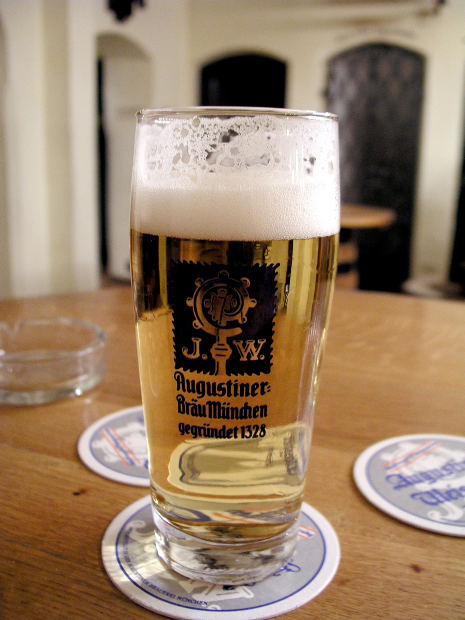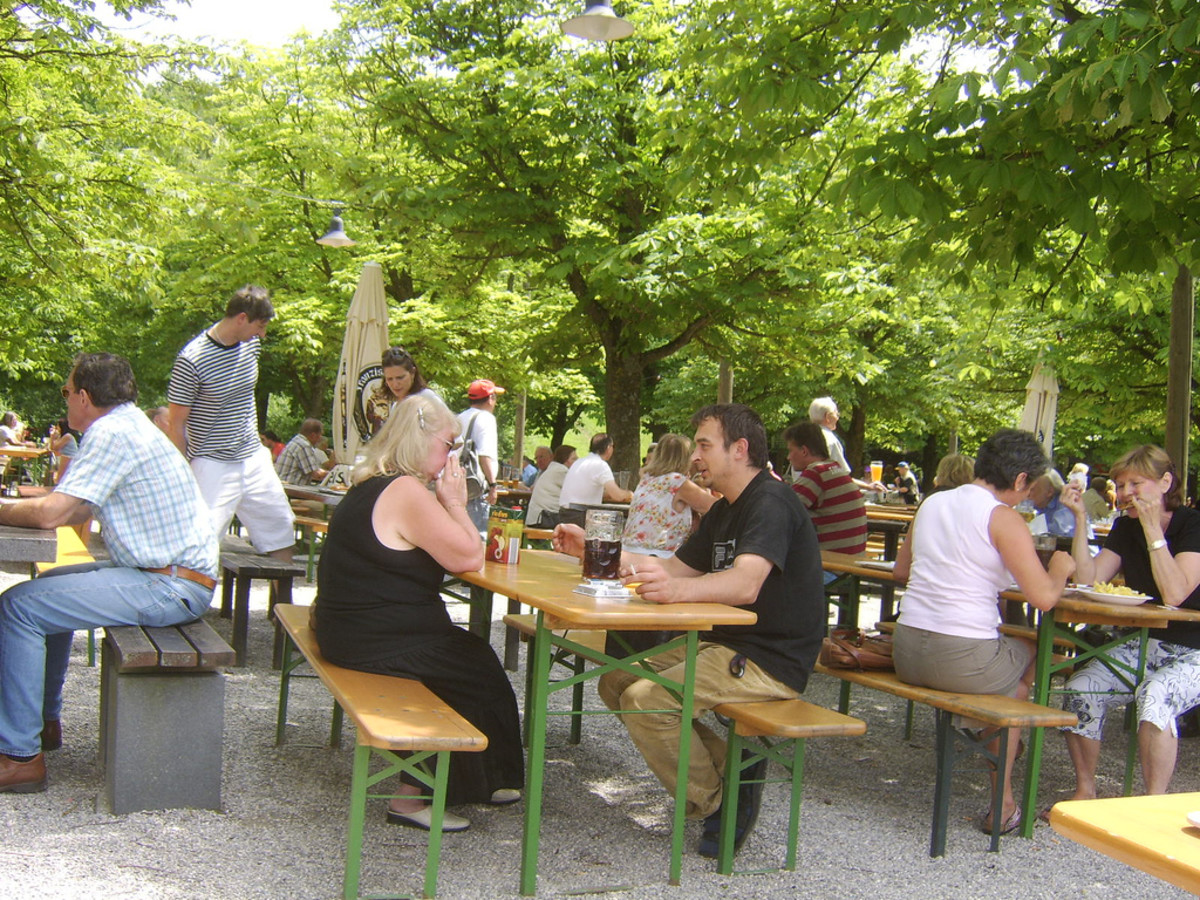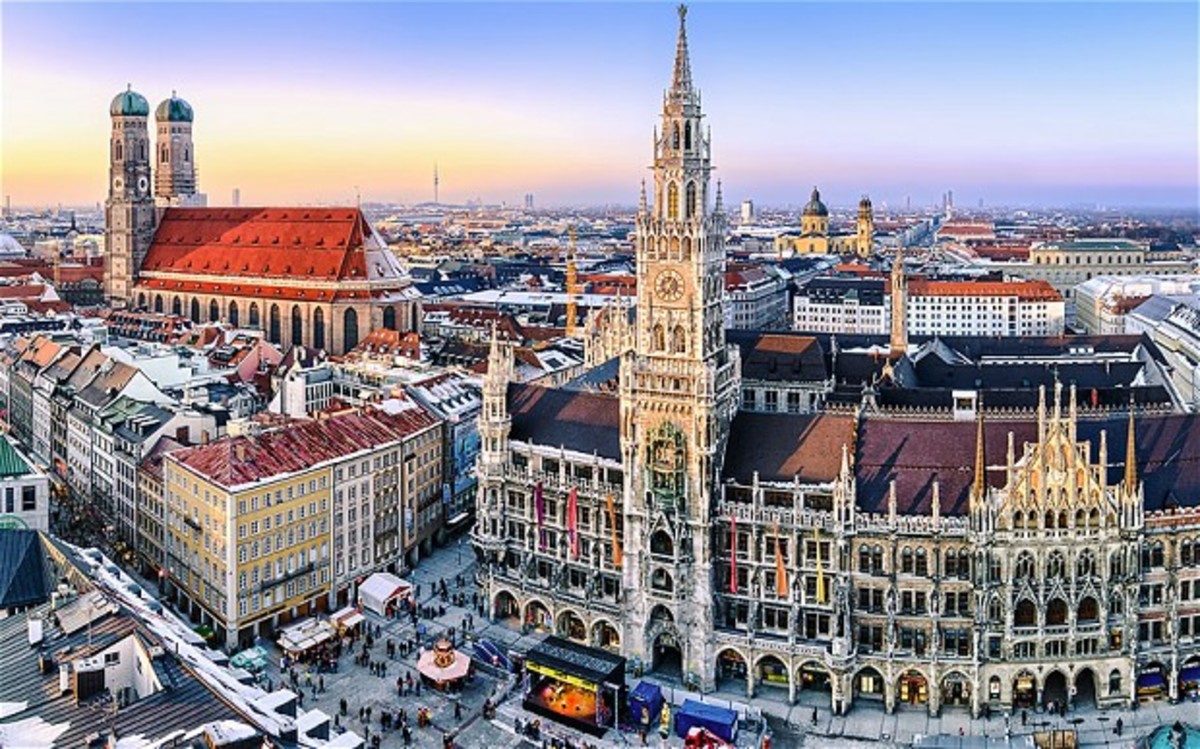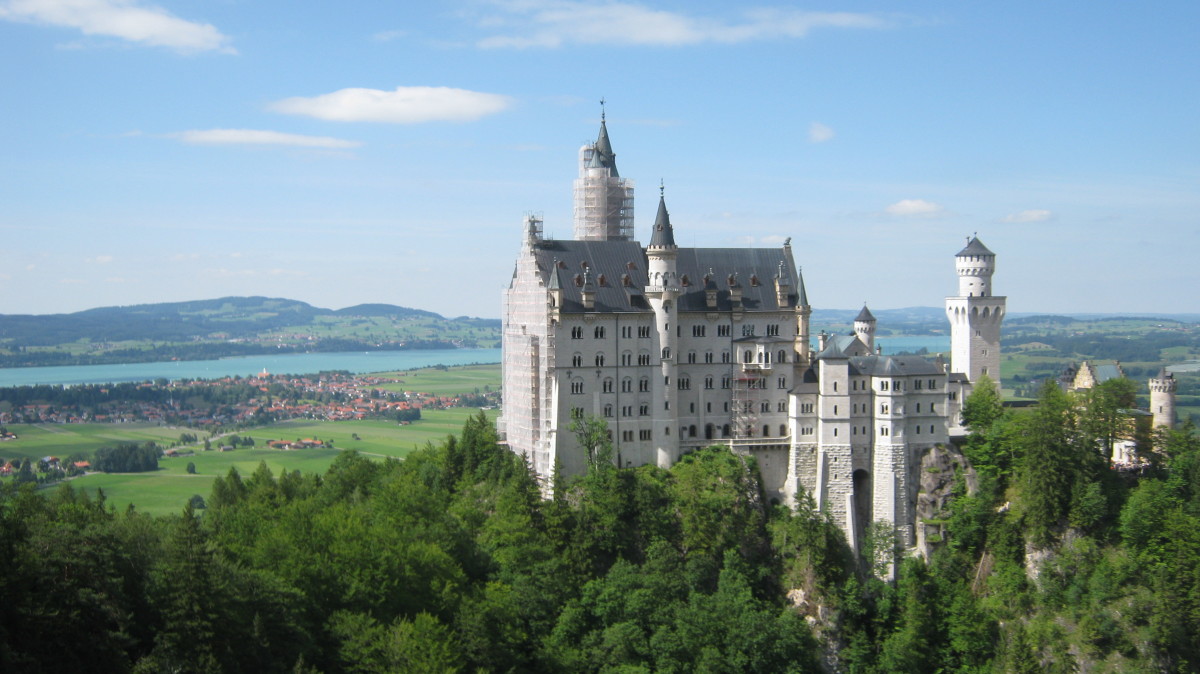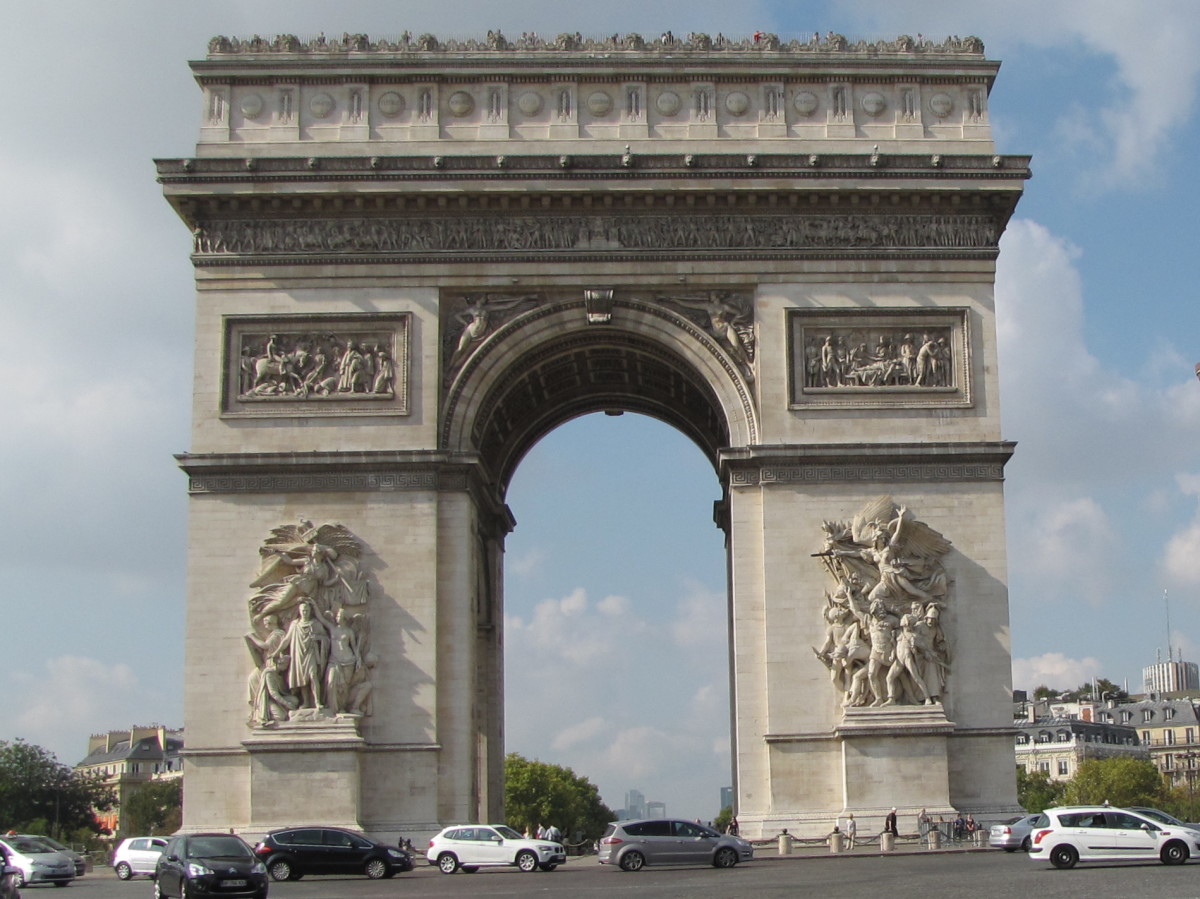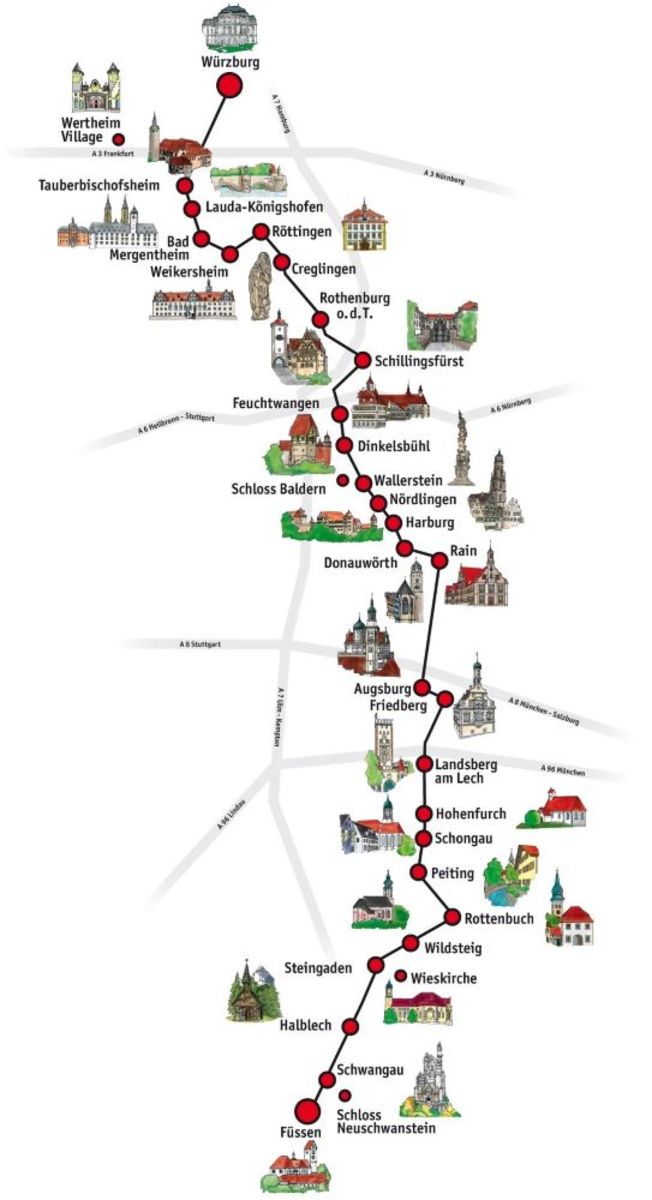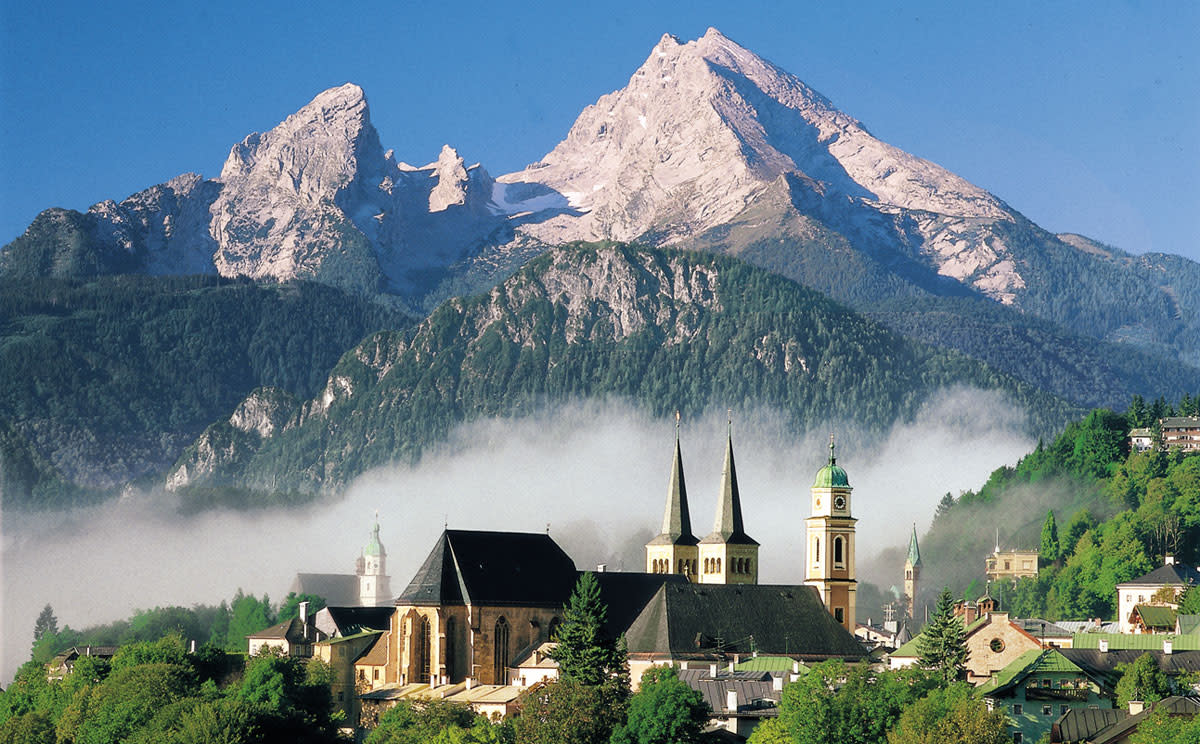A History of Munich and Oktoberfest
Oktoberfest in Munich
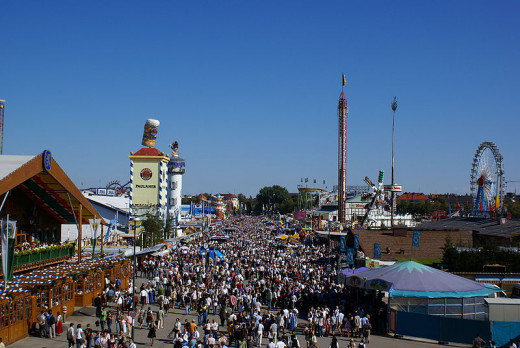
Humble Beginnings
At first, the Isar River valley, where present-day Munich is located was sparsely inhabited by small bands of peasants and farmers. Then somewhere near the beginning of the eighth century, a small band of Benedictine monks from Tegernsee, left the monastery, and began a small outpost near what is now "downtown Munich". From this humble beginning grew the modern city of Munich, third largest in all of Germany.
A Little Etymology
After the Benedictine Monks settled along the Isar, that place became known as Apud Munichen or by the monks. Eventually the growing town became known as Munichen. Germans today still use a form of that word, Munchen, to describe their fair city. Munich is simply the English equivalent.
An Important Industry
One of the first things that the newly-arrived monks did was to make and sell beer to valley residents. This lead to the creation of what is believed to be the world's first beer brewery, which was located in Fohring very near to Munich. In those days beer brewing was a church-sponsored activity, for the monks did much of the work with most of the profit going to the church. Many monks received a daily ration of beer for working in the brewery and free beer was usually given to those who attended mass regularly. Even children were given a liter of alcoholic brew after they had completed their first communion.
Munich Founded
Munich officially became a municipality on June 14th, 1158, when the German Emperor granted the local Duke (named Henry the Lion) permission to operate a bridge over the River Isar. 17 years later the first wall was built, as the small settlement approached a population of 2,500. During the following years and centuries, Munich grew to become the most important city in the German kingdom of Bavaria and so the place became home to Bavarian royalty.
Napoleon Takes Control
Napoleon took control of Germany, including Bavarian, in 1803. For the southeastern kingdom, this occupation lasted ten years and only came to an end when Napoleon launched his ill-fated invasion of Russia. In 1813 Bavaria made an alliance with Austria, thus ending its French occupation. During this period the wedding of Prince Ludwig of Bavaria to one Princess Therese of Saxony-Hildburghausen occurred in 1810. The whole town was invited to an outdoor reception, which included some horse races. In effect, this was the first Oktoberfest.
Cancellations
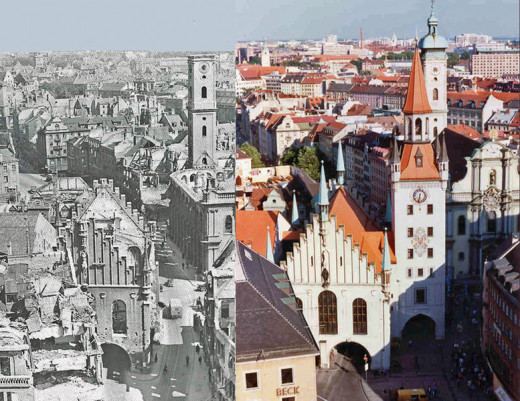
The Celebration Continues
In the year following the royal wedding, the popular horse races were repeated and a agricultural show was added. Over the years these activities became the centerpiece of the annual celebration. Beer was sold at these events, but up until 1896, beer vendors operated from wooden stands instead of tents. A fun fair featuring carousels and Ferris wheels was always a major part of the festivities. Only in the 20th century has the beer consumption become such a major factor.
Amusements
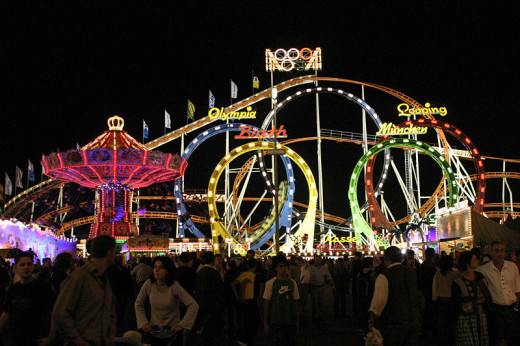
Oktoberfest Today
Today Oktoberfest is huge. Not only has the Munich festival grown dramatically in size, but also smaller spin offs can be found around the world. Among the outlying parties, beer drinking is the central theme of most celebrations. And the Munich Oktoberfest has a very large fun fair to go along with the beer tents and every third year an agricultural fair is added, similar to the one in 1811.
German Beer
